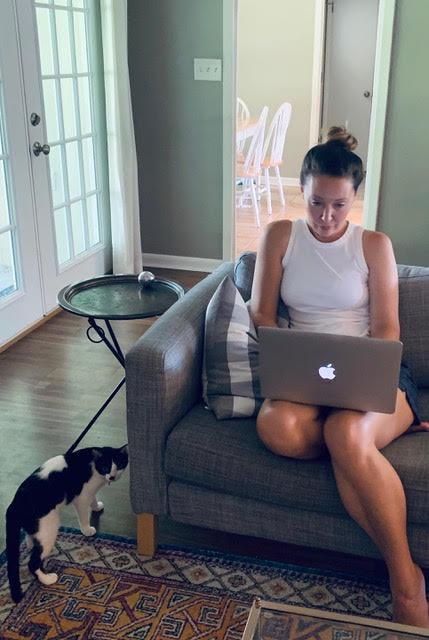The Master of Fine Arts in Writing program at Albertus Magnus College will be turning ten years old. Our MFA program is a no-residency, online creative writing program with an emphasis on developing a publishable portfolio led by faculty authors. Learn more about admissions requirements.
In celebration of the program’s tenth year, our alumni are putting pen to paper to share their Albertus experience. Hear from Jennifer Peterson ’13, an MFA program graduate whose desire to become a writer brought her across country.
***
It’s impossible to overstate the importance of this program in my development as a writer. The decision to start my MFA was pivotal in my relationship with writing. Up to that point in my life, I had invested very little in writing; I took just one creative writing class as an undergraduate, and I’d written only a handful of poems–ever. I didn’t necessarily identify myself as a writer.

“I’ll be starting a PhD in Creative Writing program this fall. I’m currently working on a poetry manuscript…I hope to have it finalized within the next few months.”
I’m not one of those people who knew since childhood that I absolutely wanted to write. So I would not have dropped everything and moved across the country for a full-time Master in Fine Arts in Writing program. But when I discovered an MFA program in New Haven, I became interested. The no-residency nature of this program removed yet another obstacle, making it possible for me to follow my fledgling interest in creative writing and see where it would take me.
So I entered the program knowing I had a lot to learn and would need strong external support to develop a writing practice. The MFA program met those needs exactly. Attentive faculty nurtured my desire to write. The course work challenged me to think deeply about writing and read widely in a number of genres. The workshop component gave me the incentive I needed to write on a schedule, to start considering an audience for my work, and to give and receive feedback. These experiences were formative for me as a writer and taught me how to continue teaching myself after graduation—how to stay motivated and critique my own work.
Another advantage I want to highlight, that’s perhaps less obvious than the instruction and accountability, is the identity aspect of the MFA. Going for this degree helped me start thinking of myself as a writer. When I embarked on this program, it was a way to tell my family, friends, even myself that I was serious about writing. It also helped me bracket those few years and say, “I’m doing this now; and I’m deciding to give it my time.”
You can read some of Jennifer’s recently published work, including: “On Liturgy”, “The Pool: Sonnet 2”, and “Of Common Grace”.
